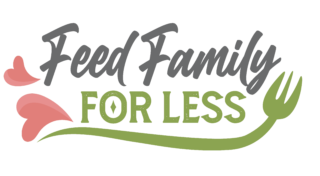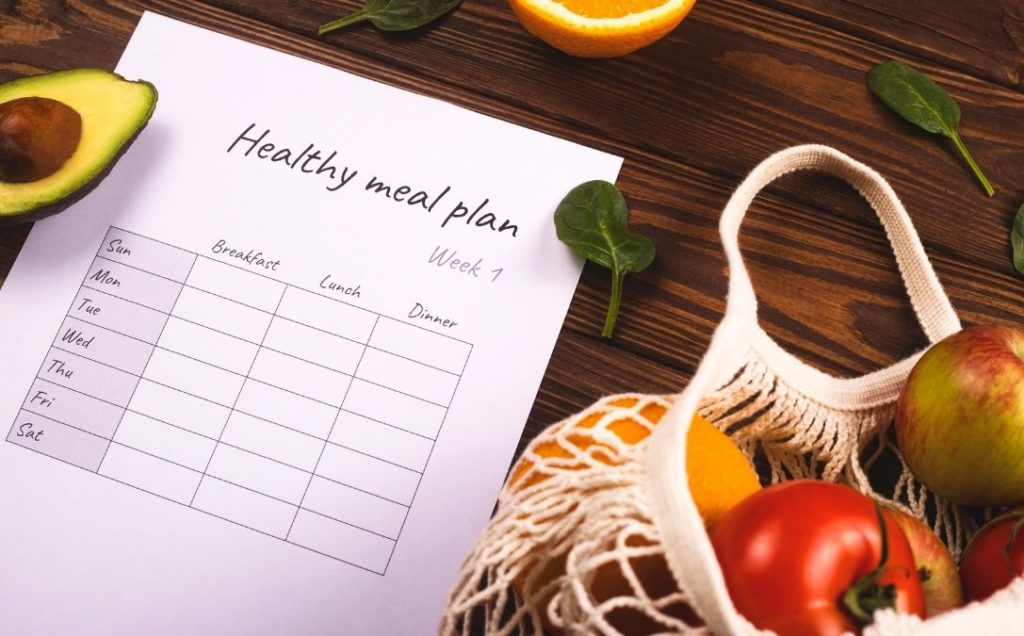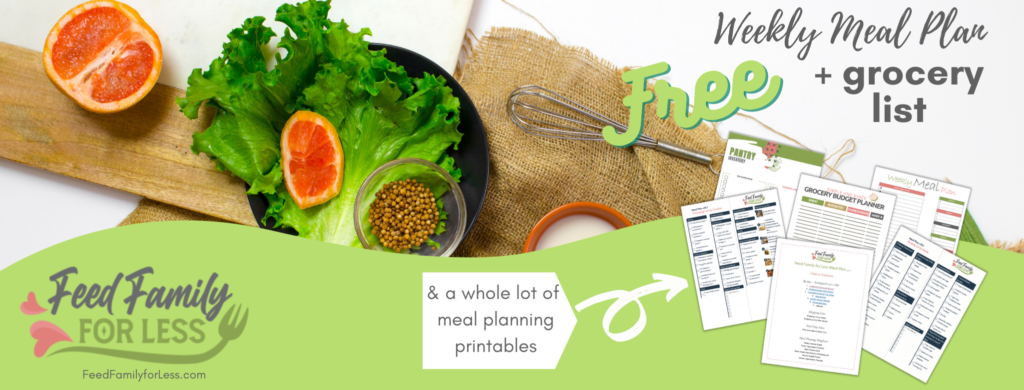Many benefits come with meal plans. Firstly, it can help you keep a healthful diet while monitoring your health and weight. Secondly, a weekly meal plan can be time-saving and cost-effective. But what is a healthy meal plan? Let’s find out:
What Is a Good Healthy Meal Plan?
A healthy meal plan provides your body with the necessary nutrients while maintaining your calorie goals for weight loss. There are also minimal chances that you will suffer from health conditions such as heart diseases with a healthy eating plan.
In most cases, a healthy meal plan will:
- Include lots of vegetables, fruits, whole grains, and low-fat dairy products
- Incorporate poultry, beans, eggs, fish, nuts, and lean meats
- Regulate saturated and trans fats, added sugars, and sodium
- Control servings
To lose weight, you need to reduce the number of calories obtained from food and beverages and increase your physical activity.
For those who intend to lose 1-1½ pounds weekly, a daily intake of 500 to 750 calories is recommended. Generally:
- Meal plans that incorporate 1,200 to 1,500 calories every day will help women lose weight cautiously.
- Eating plans that include 1,500 to 1,800 calories every day is ideal for people who exercise regularly or weigh more.
Meanwhile, you should avoid low-calorie diets of less than 800 calories per day unless you’re under medical surveillance.
This post may contain affiliate links. Read my disclosure policy here.
5 Best Healthy Meal Plans You Can Implement
1. Low-Carb, Whole-Food Diet
This type of diet is ideal for people who need to lose weight, improve health, and lower their risk of health diseases. A Low-carb, whole-food diet is flexible, allowing you to refine your carb intake depending on your calorie goals. This diet is rich in vegetables, fruits, meat, fish, nuts, sugars, low-fat starches, and processed foods.

2. Mediterranean Diet
The Mediterranean diet has been proven effective for heart disease prevention. It stresses foods commonly consumed throughout the Mediterranean region during the 20th century. For this reason, it incorporates lots of vegetables, fruits, poultry, fish, legumes, dairy products, whole grains, and extra virgin oil.

3. Paleo Diet
The paleo diet is popular for weight loss and overall health improvement. It’s currently the world’s sought-after diet. This diet emphasizes unprocessed foods, including meat, fish, eggs, vegetables, fruits, nuts, seeds, herbs, spices, healthy fats, and oils.

4. Vegan Diet
The demand for a vegan diet has increased immensely in the past decade. It’s associated with several healthful benefits, including weight loss, blood sugar control, and improved heart health. This diet is mainly plant-based and eradicates all animal products.

5. Gluten-Free Diet
The gluten-free diet is perfect for people who are allergic to gluten – a protein found in wheat, barley, and rye. For optimum health, you should concentrate on naturally gluten-free foods. This means eliminating any food that contains traces of gluten.

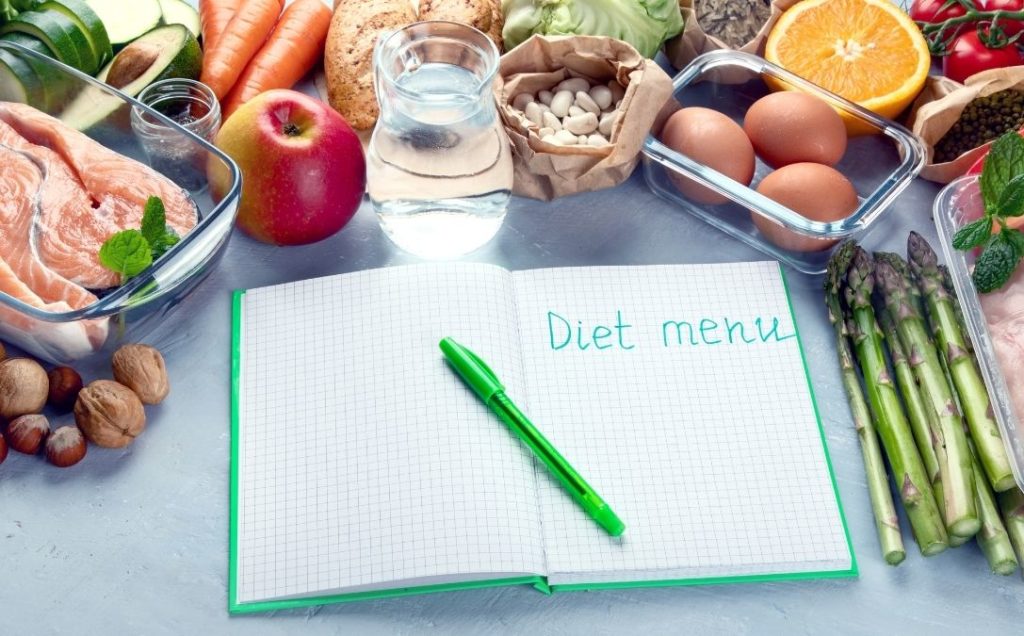
What Is the Healthiest Meal Plan for a Day?
Breakfast
A healthy breakfast should consist of energy-giving foods such as eggs and whole-grain toast. Eggs contain vitamin B 12, which is a good source of energy. They are also rich in amino acids that help your body produce an antioxidant, which becomes depleted upon drinking alcohol. On the other hand, whole-grain toast is high in filling fiber to satisfy your morning.
Lunch
Refrain from eating anything heavy to stay active throughout the day. A salad with green leafy vegetables such as spinach would do. You can also add veggies along with body-building protein like chicken or canned tuna to complete the menu. Don’t worry if you’re a vegetarian because you can always pack your bowl with chickpeas rich in vitamin B.
Dinner
Opt for broiled salmon with roasted vegetables to end the day. These combinations provide your body with antioxidants, protein, and healthy fats. You can also try pasta with shrimp and sauteed vegetables for similar benefits.
What Is a Good Menu for Losing Weight?
Nearly all weight loss plans will have you consume fewer calories than you burn. While a calorie deficit will influence your weight loss, it’s important to consider what you eat and how much you eat. That is because food choices play a significant role in your nutritional needs.
That said, a good weight loss meal plan should:
- Incorporate lots of protein and fiber. Foods rich in protein and fiber promote the full feeling for an extended period, alleviating cravings and making you feel satisfied with smaller servings.
- Regulate processed foods and added sugars. These foods are rich in calories and low in nutrients, making it difficult for the nervous system to stimulate fullness. It also becomes a challenge to lose weight and meet your nutrient requirements.
- Include plenty of fruits and vegetables. Since both are rich in water and fiber, rest assured they will meet your daily nutrient needs. These nutrients will also contribute to the fullness feeling, making it easier to control weight gain.
To integrate these tips into your weight loss eating plan, begin by packing ⅓ to ½ of your plate with starch-free vegetables. These contain fewer calories and provide water, fiber, vitamins, and all the essential minerals for your body.
After that, stuff ¼ to ⅓ of your plate with protein-rich foods like meat, fish, legumes, and the remaining part with whole grains, starchy vegetables, or fruits. These components add proteins, minerals, vitamins, and more fiber to your diet.
.
Meanwhile, healthy fats from avocados, nuts, seeds, and olives can come in handy to enhance the flavor of your diet. Those who prefer taking snacks in between meals consider snacks rich in protein-fiber for effective weight loss.
Roasted chickpeas, apple slices with peanut butter, Greek yogurt with fruits and nuts, vegetables, and hummus are a few examples of snacks taken amid meals.
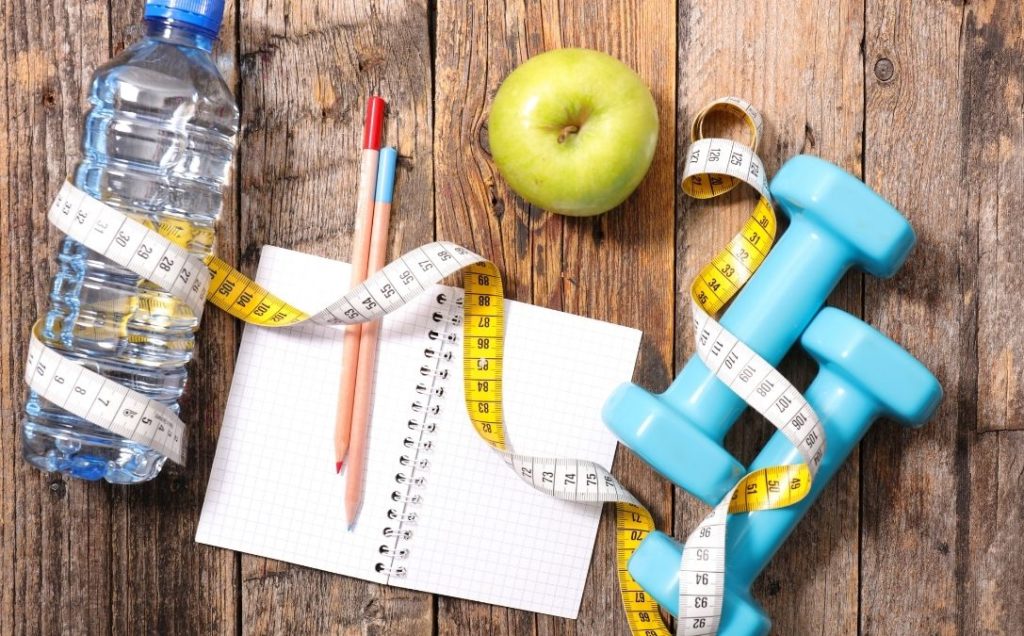
What Are the Cheapest Healthy Meals?
There are so many healthy meals you can put on the table even when running a shoestring budget. Unsurprisingly, you can prepare a healthy meal for a family of four with $10 without compromising any nutrients. So you can be sure that you’re getting a well-balanced meal. Below are some of the cheapest healthy meals you can serve your family:
1. Roasted Chicken and Vegetables
This healthy and easy to prepare chicken involves nothing complex. Simply roast potatoes, celery, carrots, and onions on a baking sheet, and put the chicken breast on top to cook. You can sprinkle a little olive oil to enhance texture.
2. Breaded Pork Chops with Apple-Cabbage Slaw
The fried pork chops and applesauce will inspire you to prepare this healthy dinner. This recipe includes pork chops breaded with whole-wheat panko, plus a crunchy apple-cabbage salad. The garnishing is done using sour cream and Dijon mustard sauce.
3. Beefy Stuffed Sweet Potato.
Since sweet potatoes are rich in beta carotene, it takes center stage and is coated with a ground beef filling. To make it complete, prepare a quick vegetable salad of shredded carrots and cilantro.
4. Quinoa with Chicken and Lentils
Utilize your rotisserie chicken leftovers to make your dinner flavorful. This meal includes quinoa, a good source of plant protein, green beans, and caramelized onions. You may then top it up with almonds and a spoon of Greek yogurt.
5. Whole-Wheat or Multigrain Pasta
Whole-wheat meals are excellent for both cold and pasta dishes. Two-ounces of dried pasta can translate up to 7 servings for most people. For $1.69, you can get a 13 to 16-ounce bag of dried pasta, and a typical diet needs about 200 calories, 6 grams fiber, and 7 grams protein.
Why Should Everyone Meal Plan?
1. Improves Your Nutrition
When you plan ahead of time, you can aim for healthy, well-balanced meals during the week. You can be sure to include all the necessary nutrients in your dinner and manage your daily nutritional requirements. Whether you want to stick to low-calorie foods or fat-free diets, go ahead and plan for it.
2. Helps With Better Meal Choices
Let’s face it – last-minute meal plan ideas can make you exhaust your daily calorie intake, or even worse, lead to poor choices. There are also high chances that you’ll add more junk to your cart when you shop hungry. So have a meal plan to avoid making rational decisions.
3. Gives You Ideas of High-quality Foods
Unlike readymade foods, homemade meals are often nutrient-dense and packed with fewer calories, sodium, and fat. Always choose your ingredients and recipes for the week for complete effectiveness.
4. It Will Save You Money
Planning will prevent wastage of resources, thus saving you money. Have meal plans that let you exhaust all the ingredients you have in store. For efficiency, start by creating a list of all the groceries you might need throughout the week to avoid impulse buying. This way, you can prevent unhealthy eating, which is a result of last-minute plans.
5. It Saves You Time
With a grocery list in mind, you’ll be visiting a grocery store with a purpose. That means buying whatever is necessary and leaving whatnot. If you’re running on a tight schedule, spare some time to prepare various meals during the weekends.
Frozen berries and yogurt can be served for breakfast. As for lunch, you can do pasta salads with mixed vegetables and beans. The best thing about these recipes is that you can take them for days without getting bored.
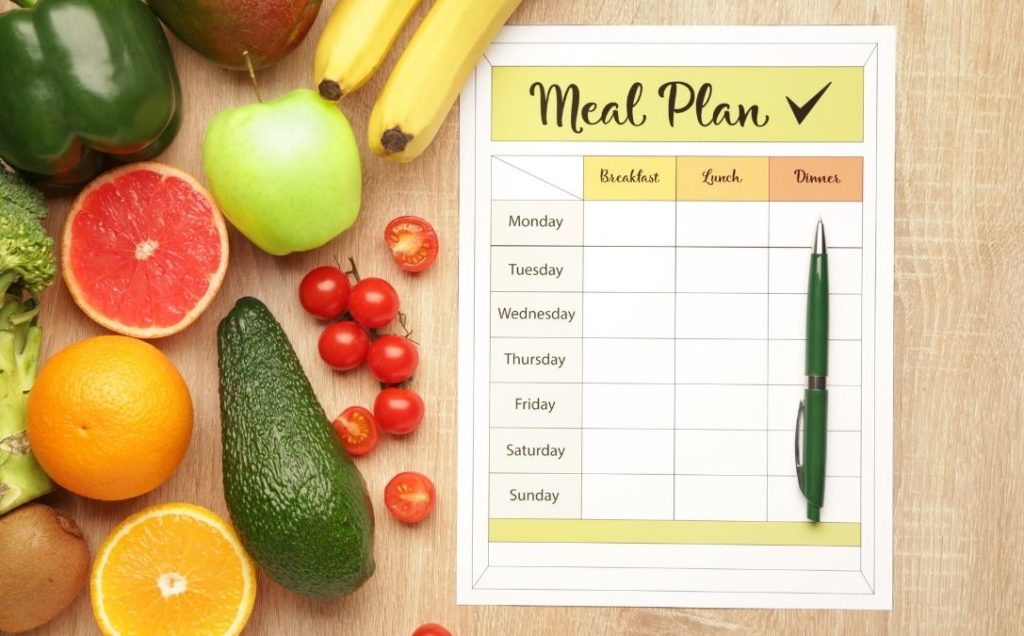
Science-Based Recommendations
Following scientific research, you should observe specific criteria for an effective meal plan. Such include:
- Incorporating more plant-based diets
- Including diets that promote a healthy gut, such as fermented foods and prebiotic fiber, such as bananas and onions
- Adding a Mediterranean diet to your meal plan, including vegetables, fruits, whole grains, unsaturated fats, and lean proteins like poultry
- the Dietary Guidelines for Americans 2015-2020
The above meal plans offer an average caloric intake of 2,000 and 2,500 for men and women, respectively. However, as daily intakes vary depending on age, sex, and activity levels, you can adjust these meal plans to meet your dietary requirements.
These meal plans incorporate various ingredients, some of which require early preparation, but most can be prepared in smaller batches and kept in the freezer for longer. Batch-cooking is often preferred when planning meals for a family or group.
